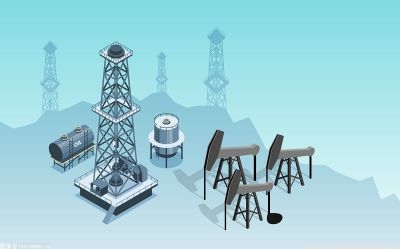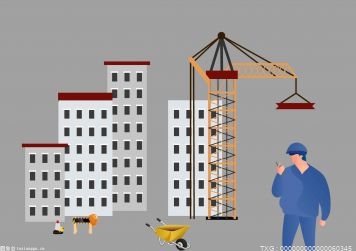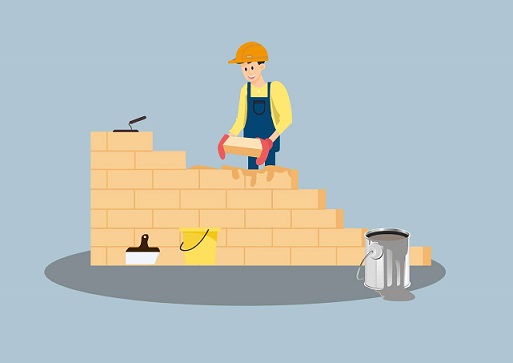 (资料图片仅供参考)
(资料图片仅供参考)
本案业主是一对90后的新婚夫妇,充满着对新生活的向往。对于这套传统的三居室住宅,他们希望通过设计师的巧妙改造,成为一套属于他们的崭新居所。
The owner of this case is a newly married couple after 90, full of longing for a new life. For this traditional three bedroom residence, they hope to become a brand-new residence for them through the clever transformation of the designer.
原本的房屋存在功能逻辑混乱、房间零碎、空间缺乏整体性等问题,设计师满足当下又着眼于未来,赋予了空间独特的气质。
The original house has problems such as confusion in functional logic, fragmentary rooms and lack of integrity in space. The designer is satisfied with the present and focuses on the future, giving the space a unique temperament.
▲房屋原始图
▲原始平面图
▲改造后平面图
焕新后的家,由光与影引导着行走的动线,以光的流动串起时间与空间,体块的秩序与纯粹的色彩,加持着整个空间的仪式。
The newly renovated home, guided by light and shadow, connects time and space with the flow of light. The order and pure color of the body adds to the ceremony of the whole space.
独立与统一
客厅&书房&餐厅&厨房
设计师认为,设计的核心是“人与人之间的关系”,它是既独立又统一的。传统的房子都比较注重空间的独立性,往往忽略了空间中人与人的统一性。
The designer believes that the core of design is "the relationship between people", which is independent and unified. Traditional houses pay more attention to the independence of space, often ignoring the unity of people in space.
打破重组。打破原来空间的封闭、沉闷、死板,根据业主的真实需求,重新优化组合空间的新功能、新格局。去掉一个卧室,改成了开放式的餐厅。
Break the reorganization. Break the closed, dull and rigid original space, and re optimize the new function and new pattern of the combined space according to the real needs of the owner. One bedroom was removed and replaced with an open dining room.
将原本封闭的厨房做成了半开放式,通过岛台实现了西厨的操作,与餐厅做了一体化处理。客厅、厨房、餐厅的连贯性打破了传统定义,形成了既独立又统一的关系。
The originally closed kitchen is made into a semi open type, and the operation of the western kitchen is realized through the island platform, and the integration with the restaurant is done. The coherence of living room, kitchen and dining room breaks the traditional definition and forms an independent and unified relationship.
在公共空间内,人与人能形成很好的互动,既可专注于自我,又可沉醉于陪伴,拥有更随心自如的生活方式。
In the public space, people can form a good interaction with each other. They can not only focus on themselves, but also indulge in company, and have a more comfortable lifestyle.
▲改造后|客厅+书房的复合设计,空间得到高效利用
客厅、厨房与餐厅相连成为空间内第一条环形动线,将各个功能模块连接一起,形成开放的空间关系,同时丰富了空间层次,更显大气与通透。
The living room, kitchen and dining room are connected to become the first circular moving line in the space, connecting each functional module to form an open spatial relationship, enriching the spatial level and showing more atmosphere and transparency.
▲改造后|隔断墙做成了镂空的形式,让室内光线更充足
设计师调转了原本客厅的位置,加入开放性书房,形成多功能书房和客厅的复合空间,复合空间满足了多种使用场景,还在客厅与书房之间做了水吧台,形成了空间内第二条环形动线,让生活更加便捷,同时也强调了空间的“独立、统一”性,使空间更精彩、更好用。
The designer changed the position of the original living room and added the open study to form a composite space of the multi-functional study and the living room. The composite space meets a variety of use scenarios. A water bar is also built between the living room and the study, forming the second circular moving line in the space, making life more convenient. At the same time, it also emphasizes the "independence and unity" of the space, making the space more exciting and better used.
▲改造后|两间卧室改造成了餐厅和多功能房,无论空间面积还是视野范围都得到了合理分配
业主和狗狗感情很深,故设计师在整个空间最为核心的位置处设计了狗窝。在公共空间中,无论在厨房做饭还是在客厅后面看书,都可以和狗狗互动。狗狗的存在,让家温暖又治愈。
The owner and the dog have deep feelings, so the designer designed the dog kennel at the core of the whole space. In the public space, you can interact with dogs whether you are cooking in the kitchen or reading in the back of the living room. The existence of dogs makes the home warm and healed.
抽离色彩,注重光影
窗户&窗台
抛开冗余的装饰堆砌,以简单朴素的光与线条构建空间层次。
Put aside the redundant decorative stacking, and build the spatial hierarchy with simple and simple light and lines.
用遮光板代替窗帘,利用丁达尔效应和自然光形成光影感,光与影相呼相应,塑造着空间的氛围感与层次感。阳光稀稀疏疏地射进客厅里,展示它随着时间变换的隐约、律动的光影。
Instead of curtains, shading panels are used to form the light and shadow feeling by Dindal effect and natural light, and light and shadow call each other, shaping the atmosphere and level of the space. The sunlight is scattered into the living room, showing its faint and rhythmic light and shadow changing with time.
▲改造后|窗口处光影交错,美不胜收
为了解决客厅没有落地窗的问题,设计师在窗户下做了飘窗柜,增加了空间的延伸性与层次性,形成落地窗的既视感,同时增加了客厅的收纳空间。朋友聚会时,飘窗柜既是围合而坐的载体,又是欢声笑语的载体。
In order to solve the problem that there is no floor to ceiling window in the living room, the designer has made a floating window cabinet under the window, which increases the extension and hierarchy of the space, forms the visual sense of the floor to ceiling window, and increases the storage space of the living room. When friends get together, the floating window cabinet is not only the carrier of sitting around, but also the carrier of laughter.
把全屋唯一一个落地窗,也是风景最好的地方留给餐厅,希望鼓励这对年轻夫妇在家做饭、吃饭。让原本最繁杂且枯燥的事成为他们最惬意的时光,沉醉其中,享受其中。
The only floor to ceiling window in the whole house and the place with the best scenery are reserved for the restaurant, hoping to encourage the young couple to cook and eat at home. Let the most complicated and boring things become their most comfortable time, immerse in them and enjoy them.
亦窗亦景,自在相宜
主卧&卫生间
与家庭成员交互的共享空间不同,私享空间更加注重个人体验的私密感与舒适度,因此在保留空间独立性的同时,还将体验与空间融合,达到身处其间,悦享自在的目的。
Unlike the shared space that interacts with family members, the private space pays more attention to the privacy and comfort of personal experience. Therefore, while preserving the independence of the space, it also integrates the experience and the space, so as to achieve the goal of being in the middle and enjoying the freedom.
卧室入口处的过廊式衣帽间,有效利用了室内空间,增加收纳。
The corridor type cloakroom at the entrance of the bedroom effectively utilizes the indoor space and increases the storage.
▲改造后|半开放的衣帽间,让行走动线更宽阔
设计师将床尾朝南,正对窗户,与清晨阳光一起迎接业主的,还有起床后第一眼窗外的风景。床头背后设计了梳妆台,实现了功能模块与床的完美结合。
The designer faces the end of the bed to the south, facing the window, welcoming the owner together with the early morning sun, and the first view outside the window after getting up. A dressing table is designed behind the head of the bed to realize the perfect combination of functional modules and the bed.
南北居中安置的地台床和背靠背的梳妆台成为一组模块,在卧室的空间里形成了空间的第三条环形动线,满足了两个人在左右两侧下床。在这个空间里,人和人是既独立又统一的关系。
The platform bed and the back-to-back dressing table arranged in the middle of the north and South form a group of modules, forming the third circular moving line of the space in the bedroom, which satisfies two people to get out of bed on the left and right sides. In this space, people are independent and unified.
主卧卫生间原本是暗卫,设计师改变了卫生间的朝向,加入了玻璃推拉门,解决了卫生间的采光问题。
The master bedroom bathroom was originally a dark bathroom. The designer changed the orientation of the bathroom and added a glass sliding door to solve the lighting problem of the bathroom.
卫生间地面做了三层,体现着空间的层次感。第一层是地面,第二层则具备展示功能,将浴缸的氛围和效果展现出来,第三层抬高马桶处地面,设计师希望在马桶处的时候,也能看到窗外的风景。
The toilet floor has three floors, reflecting the sense of spatial hierarchy. The first floor is the ground. The second floor has the display function to show the atmosphere and effect of the bathtub. The third floor raises the floor of the toilet. The designer hopes to see the scenery outside the window when he is at the toilet.
探索未知,着眼未来
X空间
考虑到业主之后会有宝宝,但现在还是二人世界,设计师将原本的儿童房打造成为X空间,更加符合对于空间在时间轴上的思考。闲暇时,业主可以在这里聚会、玩桌游或是独处。
Considering that the owner will have a baby later, but it is still a world of two people, the designer turned the original children"s room into x space, which is more in line with the thinking of space on the time axis. In their spare time, owners can meet, play board games or be alone here.
练琴室承载着业主的音乐享受,亦是对生活的态度。
The piano practice room carries the owner"s music enjoyment and attitude towards life.
项目信息
Information
━
项目地址 | 北京
Project Location | Beijing
项目名称 | 阳光上东
Project Name | Upper East Side
设计团队 | YU SPACE设计事务所
Design Team | YU Space Design Lab
主案设计 | 韩宇 许鑫
Chief Designer | Han yu Xu xin
深化设计师 | 霍兴远
Deepening Designer | Huo xing yuan
软装设计师|刘颖
interior Decoration Designer | Liu ying
项目面积 | 140m²
Project Area | 140m²
设计时间 | 2021.1
Design Date | 2021.1
材料应用 | 微水泥 木地板 木饰面 大理石
Materials | Microcement Wooden floor Wood veneer Marble
| 关于 YU SPACE |
【与】空间设计研究所,跨足于室内与建筑领域,秉持着“与众不同|才觉有趣”的设计初衷。差异化、有趣性展现设计更多的可能性。设计不仅仅与美有关,也更多的去关乎人性,重建着人与物,人与光影,人与空间,人与时间的美好关系,构建与心一致的空间状态。
【与】作为链接改变生活,让每个项目与众不同,从而乐趣不断。
YU Space Design Lab refers to the field of interior and architecture, with the "extraordinary | just amusing" designed. Differentiation and fun reveal more possibilities for design. Design is not only about beauty, but also more about human nature, rebuilding the beautiful relationship between people and things, people and light and shadow, people and space, people and time, and construct-ing the space state consistent with the heart.
YU Space Design Lab changes life, make each project different, and keep the fun going.
来源: 与 DESIGN













































